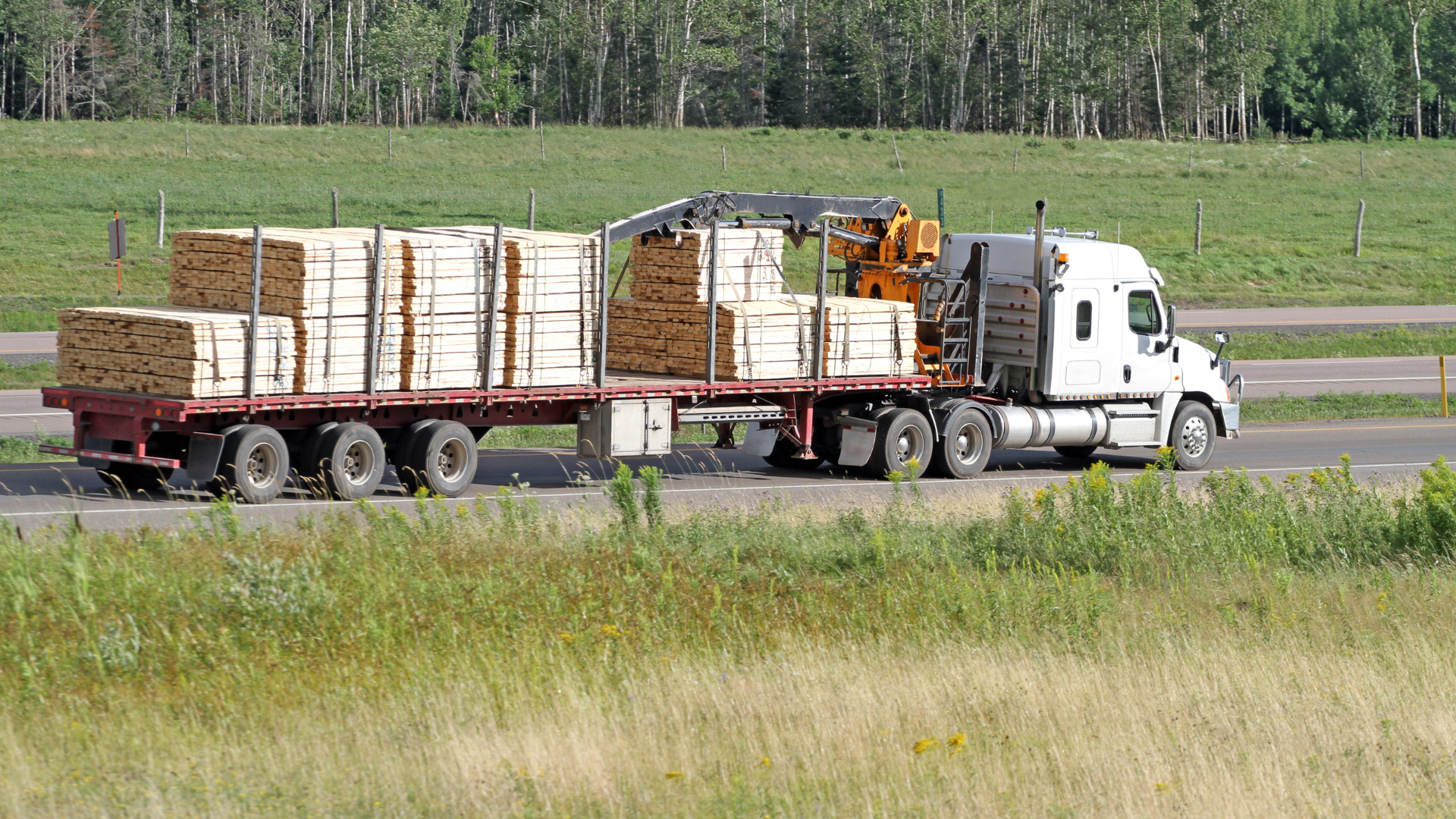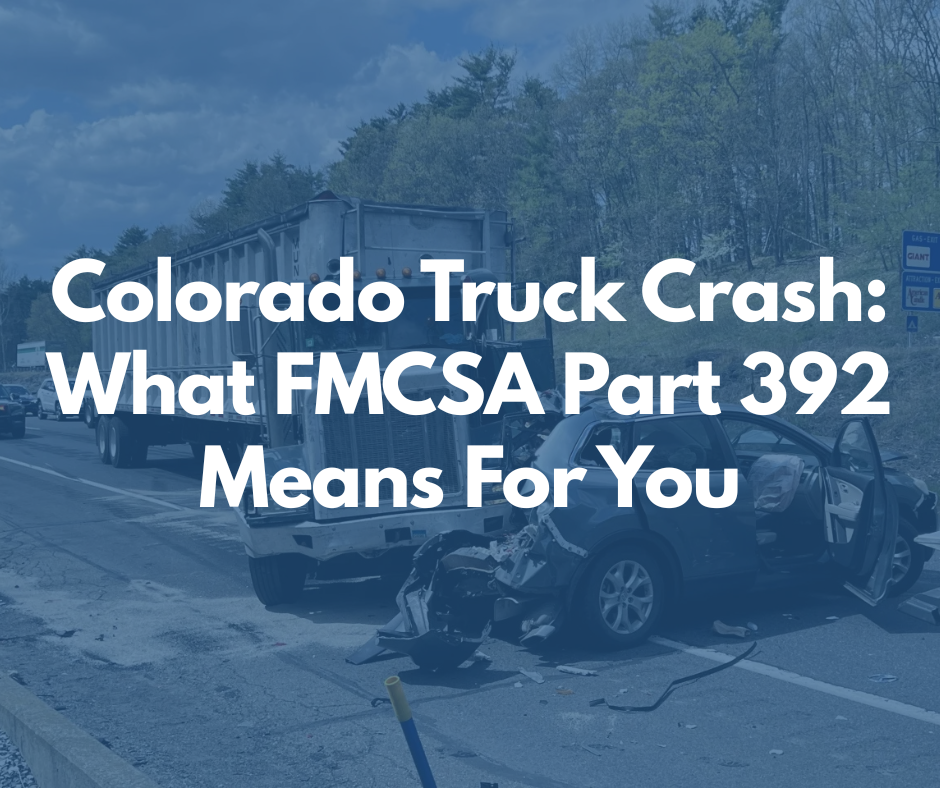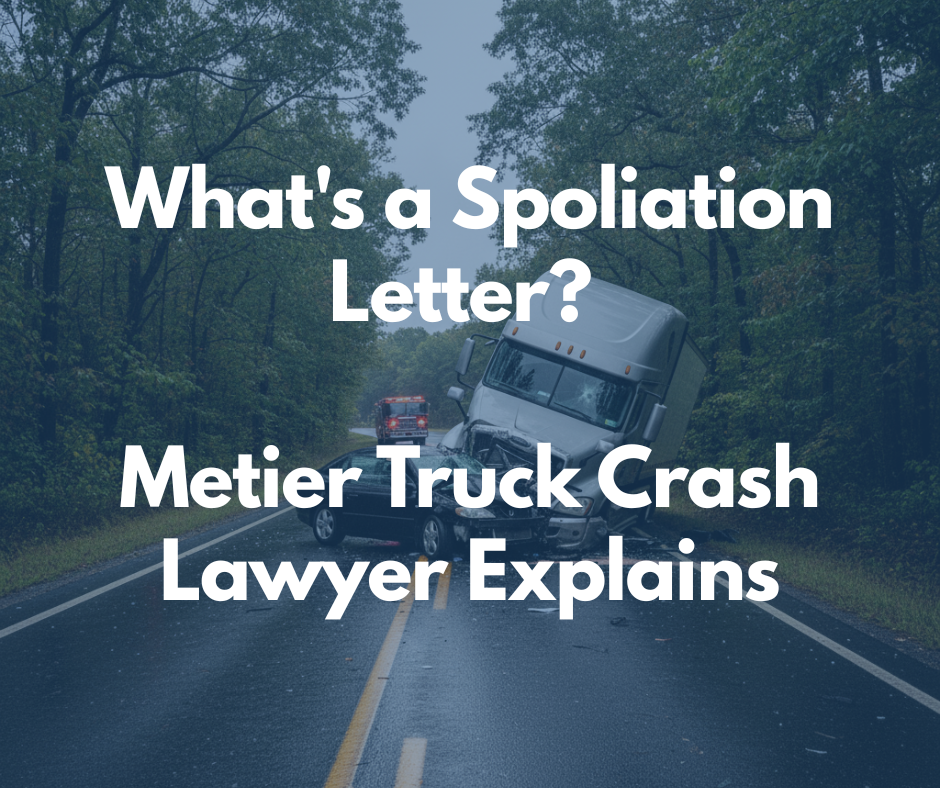
TL;DR - Key Points of this Article
- Overloaded trucks exceed the federal 80,000-pound weight limit and create deadly hazards including longer stopping distances, rollover risk, and tire blowouts
- Trucking companies often overload vehicles to maximize profits, violating FMCSA safety regulations
- Common dangers include brake failure, semi truck tire blowouts, cargo spills, and jackknifing on curves
- Multiple parties can be held liable: trucking companies, shippers, drivers, cargo brokers, and logistics firms
- Weight records are often destroyed after crashes, making immediate legal action critical to preserve evidence
- A truck accident lawyer with CDL experience can identify technical violations and prove liability across the supply chain
- If injured by an overloaded truck, document the scene, get medical attention, and contact Metier Law Firm at 866-377-3800
Every day, thousands of commercial trucks travel through Colorado, Washington, Oregon, Wyoming, and Nebraska carrying goods that keep our economy moving. Most trucking companies follow the rules. But when carriers cut corners and overload their vehicles to maximize profits, I know the results can be deadly. As a truck accident lawyer, I’ve seen it firsthand in my 18 years of experience in our cases: overloaded truck trailers don't stop like they should, they tip over on curves, and their tires explode under pressure. If you've been hit by one of these massive vehicles, you already know how devastating the impact can be.
What Is Considered an Overloaded Truck?

An overloaded truck is any commercial vehicle that exceeds federal or state weight limits. Under Federal Department of Transportation regulations, the maximum gross vehicle weight for a truck traveling on interstate highways is 80,000 pounds. This includes the weight of the tractor, trailer, and cargo combined. Individual axle weight limits also apply: 12,000 pounds for the steering axle, 34,000 pounds for tandem axles.
States can set their own limits on non-interstate roads, and those rules vary across the West. What makes a truck legally overloaded in Nebraska might differ slightly from Washington's standards, but the federal limits apply when these rigs cross state lines. Overloading happens when shippers, brokers, or trucking companies pack more cargo than the law allows, often without properly weighing the load before departure.
Why Are Overloaded Trucks So Dangerous?
When a truck weighs more than it should, every system on that vehicle is pushed beyond its design limits. Brakes overheat. Tires strain. Suspension systems flex and fail. As someone who holds a CDL and has been behind the wheel of these rigs, I can tell you that an extra 10,000 or 20,000 pounds changes everything about how a truck handles. For the cars, SUVs, and motorcycles sharing the road, those changes create life-threatening hazards.
Longer Stopping Distances and Poor Braking
An 80,000-pound truck already needs about 525 feet to stop at highway speeds under ideal conditions. Add another 20,000 pounds of improper truck loads, and that stopping distance increases dramatically. The brake system can't dissipate the heat fast enough, leading to brake fade or complete brake failure. We've worked cases where overloaded truck trailers rear-ended stopped traffic because the driver simply couldn't slow down in time.
Higher Risk of Rollovers and Jackknifing
Overloaded truck trailers raise the vehicle's center of gravity, making it unstable in turns or when changing lanes. On mountain passes in Colorado or Wyoming, or along curved highways in Oregon and Washington, that instability becomes a catastrophe waiting to happen. When a truck rolls over or jackknifes, it can block multiple lanes and cause multi-vehicle pileups. The dangers of overloaded trucks become especially clear on winding roads where physics takes over and drivers lose all control.
Tire Blowouts and Suspension Failure
Semi truck tire blowouts are one of the most common mechanical failures we see with overloaded trucks. Each tire has a load rating, and exceeding that rating causes the rubber to overheat and separate. When an 18-wheeler loses a tire at 70 mph, the driver can lose control instantly. Suspension components also crack and break under excessive weight, causing the trailer to sway or the truck to become unsteerable.
Cargo Instability and Falling Debris
Overloaded trucks often have improperly secured cargo because there's simply too much weight to tie down correctly. Cargo shifts during transit, and items fall off trailers onto highways. We've represented families whose loved ones were killed when cargo spilled into traffic, causing crashes that could have been prevented if the truck had been loaded properly. Improper truck loads create hazards for everyone traveling behind or beside these vehicles.
Reduced Maneuverability and Visibility

Overweight trucks take longer to accelerate, struggle to climb hills, and can't maneuver around obstacles. Drivers of overloaded vehicles may also have reduced visibility if cargo is stacked too high or loaded improperly. This makes merging, passing, and reacting to road hazards much more difficult. In a truck crash scenario, those extra seconds of reaction time can mean the difference between a close call and a fatal collision.
Common Causes of Overloading in the Trucking Industry
Overloading doesn't happen by accident. It's usually a deliberate decision driven by financial pressure. Trucking companies get paid by the load, so packing more freight onto a single truck means more profit per trip. Some shippers pressure carriers to take extra weight, and some drivers agree because they're paid by the mile and want to maximize their earnings.
Poor weight distribution is another issue. Even if the total weight is legal, loading too much weight on one axle creates the same dangers. Carriers sometimes skip weigh stations or use routes that avoid scales, hoping to get away with violations. According to Federal tracking data, weight-related violations are consistently among the top citations issued during roadside inspections across our service areas in Nebraska, Wyoming, and the Pacific Northwest.
Who Is Liable in an Overloaded Truck Accident?
Liability in a truck accident with a car or other vehicle involving improper truck loads can extend to multiple parties. The trucking company is often responsible for ensuring loads comply with trucking weight regulations. If they knew about the overweight condition or should have known, they can be held liable. The shipper who loaded the cargo may also share responsibility, especially if they provided inaccurate weight information or pressured the carrier to overload.
The driver can be liable if they knowingly operated an overloaded vehicle or failed to check the weight before departure. Cargo brokers and third-party logistics companies may also bear responsibility if they arranged the shipment and ignored weight limits. In many cases, multiple parties share fault, which is why a truck accident lawyer needs to investigate every link in the supply chain.
If you or a loved one was injured in a crash with a commercial truck, call us at 866-377-3800 or schedule a free consultation at www.metierlaw.com.
Federal Truck Weight Regulations and Enforcement
The FMCSA sets weight limits to protect roads and public safety. States enforce these rules through weigh stations and roadside inspections. Colorado, Washington, Oregon, Wyoming, and Nebraska all operate weigh stations along major trucking corridors. Enforcement officers use scales and portable weighing equipment to check compliance.
Penalties for overweight violations vary by state and the severity of the overload. Fines can range from a few hundred dollars to thousands per violation. Repeat offenders face higher fines and potential suspension of operating authority. Despite these trucking weight regulations, enforcement data from the FMCSA shows that weight violations remain a persistent problem in the trucking industry.
Steps to Take After an Accident Involving an Overloaded Truck
If you've been in a truck accident with a car or other vehicle caused by an overloaded commercial truck, taking the right steps immediately can protect your legal rights. First, get medical attention even if you feel okay. Adrenaline can mask injuries, and documenting medical treatment early is critical.
Call law enforcement and insist on a full accident report. If possible, take photos of the truck, including any visible cargo, the truck's DOT number, and the scene. Get contact information from witnesses. Do not give a recorded statement to any insurance company before speaking with an attorney.
Weight records are often destroyed or altered after a truck crash, so time matters. Our firm can issue legal holds to preserve weigh station records, electronic logging data, and cargo manifests. We'll investigate whether the truck was overloaded and use that evidence to build your case. Understanding the steps to take after an accident involving an overloaded truck can make the difference between a successful claim and a denied one.
Why You Need a Truck Accident Attorney for Overloaded Vehicle Claims
Overloaded truck cases are complex. Trucking companies have teams of lawyers and investigators working to minimize their liability the moment a crash occurs. They'll argue the driver wasn't at fault, the cargo weight was legal, or that you're exaggerating your injuries. You need someone on your side who knows how these companies operate and how to fight back.
As a truck accident lawyer with a CDL, I understand the technical side of trucking. I know what weight records should look like, how cargo should be secured, and what violations to look for during an investigation. Our firm has handled countless cases involving the dangers of overloaded trucks across Colorado, Wyoming, Oregon, Washington, and Nebraska. We know how to prove liability and maximize compensation for our clients. A truck accident attorney who understands both the legal and mechanical aspects of these cases can identify violations that general practice lawyers might miss.
Frequently Asked Questions
Who is responsible if a truck is overloaded?
Responsibility can fall on the trucking company, the shipper who loaded the cargo, the driver, or the broker who arranged the shipment. A truck accident lawyer will investigate the entire supply chain to identify all liable parties and maximize your recovery.
How much are most truck accident settlements?

Settlement amounts vary widely based on the severity of injuries, medical costs, lost wages, and liability factors. Cases involving overloaded truck trailers can result in settlements ranging from hundreds of thousands to millions of dollars. Every case is unique, and an experienced truck accident attorney can evaluate what your claim is worth.
Who is responsible for overweight trucks?
The trucking company has the primary duty to ensure vehicles comply with weight limits. Drivers are also responsible for checking loads before departure. Shippers and brokers can share liability if they contributed to the overloading. Federal and state trucking weight regulations hold all parties in the shipping process accountable.
Is it illegal to overload a truck?
Yes. Federal law sets maximum weight limits for commercial trucks at 80,000 pounds gross vehicle weight on interstate highways. Exceeding these limits violates FMCSA regulations and state traffic laws. Penalties include fines, citations, and potential criminal charges in cases involving serious injury or death.
Injured by an Overloaded Truck? Get Legal Help Today
Overloaded truck trailers put everyone on the road at risk. When trucking companies prioritize profits over safety, innocent people pay the price. If you or someone you love was hurt in a truck crash caused by an overloaded commercial vehicle, you deserve answers and accountability. Whether your case calls for the experience of a Fort Collins, Omaha, Seattle, Denver or Portland truck accident lawyer, we’ve spent years holding negligent carriers responsible — and we’re ready to do the same for you.
Call Metier Law Firm at 866-377-3800 or schedule your free consultation today at www.metierlaw.com.
Disclaimer: Past results discussed should not be considered a guarantee of your results as the factors of every case are individually unique. This content is for informational purposes only and does not constitute legal advice. Consult a qualified attorney from Metier Law Firm regarding your individual situation for legal advice.
Tell Us About Your Case – Free Case Review with a Truck Accident Lawyer
Tell Us About Your Case – Free Case Review with a Personal Injury Lawyer
(866) 377-3800Our Locations
.webp)
Do I have a Case?
How Much Should I Be Offered?
Do I Need an Attorney?
If these questions have crossed your mind, let us help. You may need a little direction or may not need an attorney at all, but you deserve to be confident knowing your options. We can provide you with information about our Attorneys of the West® accident investigations and legal services. Your confidential consultation with us is totally free.
Keep up with us!

.svg)




